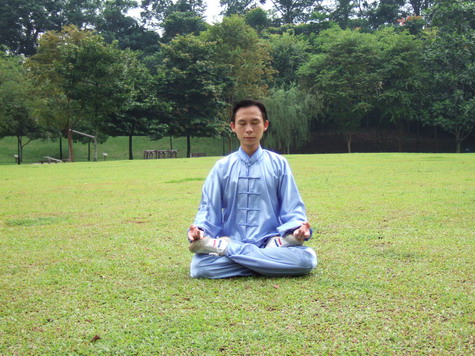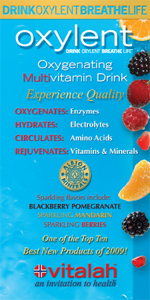18.5 - 24.9 = Normal
25 - 29.9 = Overweight
> 30 = Obesity



If time permits, I would like to sign up for a proper course. It was good exercise :)
- Beatty Sec
- Beatty Sec
- Beatty Sec
- ICA
- CHIJ St Nicholas Girls School
There were so many moves of self-defense. Coaches are very nice. This rocks!
- Northland Primary
- CHIJ St Nicholas Girls School
Coach make us feel “Taichi"
- Hong Wen School
I want to learn more advanced Taichi.
- Hong Wen School
- Princess Elizabeth Primary
The coach is very good in Wushu, I would like to continue learning.
- Princess Elizabeth Primary
- Princess Elizabeth Primary
Read More >>
(WORD COUNT: 1,094)
We all know how unpleasant excessive stress can be. We also know the feeling of sickness in our stomach before an important performance, and the intense 'fight-or-flight' reaction we get when we face frustration after frustration.
In this society where challenges have to be met and limits to be broken all the time, there are just too many stresses which one had to handle & faced, be it student who faces stress at school work & during exam period or the working adult who had to meet the demands of never ending workload & unrealistic deadlines. Relaxation techniques become a marvelous way to help in the quest for stress management.
A lot of people have the misconception that relaxation is just only about having peace of mind or simply enjoying a hobby during their past time. However, relaxation is much more than just that, relaxation is actually a process that helps reduces the wear and tear of life’s challenges both physically & mentally so that one can recharge & keep on going positively in life.
Regardless whether one has a very stressful & hectic lifestyle or they have managed to get it under control, one can still benefit from learning the different relaxation techniques. Learning basic relaxation techniques is easy & by exploring these simple relaxation techniques, one is able to get started on de-stressing their life and improving their holistic health.
According to a research done on using relaxation training in improving of irritable bowel syndrome, it was found that with relaxation training in a brief group intervention, it has significantly improves symptom severity, general health perception and medical consumption in irritable bowel syndrome patients immediately after, as well as 6 and 12 months after intervention.[2]
- Decrease in heart rate
- Able to stay mentally positive
- Slowing one’s breathing rate
- Reducing the need for oxygen
- Increasing blood flow to major muscles
- Reducing muscle tension
- Reducing emotional responses, such as anger and frustration
- Improved concentration & focus
- Greater ability to handle problems
- More efficiency in daily activities
Although health professionals such as complementary and alternative medicine practitioners, doctors and psychotherapists can teach relaxation techniques, we can also learn some of these techniques on our own.
The relaxation response leads to a quieting of the sympathetic nervous system. This relaxation response thus prevent one from being overstress, however it can only be evoked through conscious effort.
Relaxation techniques usually involve refocusing your attention to something calming and increasing awareness of your body. Regular use of the relaxation response helps to offset the effects of fight-or-flight responses (Benson, 1976). It doesn't matter which techniques one choose, what matters is the need to practice relaxation response regularly to benefit from it.
There are several main types of relaxation techniques, including:
Body-to-mind control is one method which one can use to evoke the relaxation response. It is also known as progress muscle relaxation. In this technique, we will focus on slowly tensing and then relaxing each muscle group. This helps us to focus on the difference between muscle tension and relaxation, and we will become more aware of our physical sensations. We may choose to start off by tensing and relaxing the muscles in our toes and progressively working our way up to the neck and head. Tense the various muscles for at least five seconds and then relax for 30 seconds, and repeat.
Mind-to-body control is another method of evoking the relaxation response. In this technique, we will first select a quiet environment, get into a comfortable position and close our eyes. Next, we will concentrate fully on taking a deep breath and slowly to be aware of the breathing. While we are breathing out, repeat a positive cue word or sentence, for instance, “I’m relaxing my whole body”, “my whole body feels relax and free”. Continue doing this for another 10 to 20 minutes. During this exercise, we will adopt a passive attitude, which means that we will allow any distractions that come to our mind to simply pass through and not to focus on the thoughts so as to allow relaxation to occur at its own pace.
Visualization is the third relaxation techniques one can perform. In this technique, one will form positive & relaxation mental images so as to take on a visual journey to a peaceful, calming place or situation. We will try to stimulate using as many senses as possible, including smells, sights, sounds and textures. If we imagine relaxing at the ocean, for instance, we will think about the warmth of the sun, the sound of crashing waves, the feel of the grains of sand and the smell of salt water. We may choose to close our eyes, sit in a quiet spot and loosen any tight clothing so that it will help in the process of the overall relaxation technique.
There are also other relaxation techniques which include those that are more familiar with, such as Taichi, yoga, music, exercise, meditation, hypnosis and massage etc.
In Taichi, we combine both the techniques of body to mind & mind to body relaxation responses. Taichi can also be regarded as a form of dynamic meditation and when coupled with music along with the rhythmic, graceful smooth & continuous movements, it can be considered as one of the more holistic and complete form of relaxation techniques where it combines the positive effects of all the other different form of relaxation techniques.
As we learn & explore the various relaxation techniques, we will slowly become more aware of our muscle tension and also other physical sensations of stress. Once we are able to get a understanding of what the stress response feels like, we can then make a conscious effort to practice a relaxation technique as described earlier the moment we feel our muscles start to tense up.
In this way, we can prevent & thus avoid stress from spiraling out of control. We need to understand that relaxations techniques are skills just like other skills such as swimming, running, baking a cake and as with any skill, our ability to relax improves with correct practice. We need to be patient when performing the relaxation exercises & stay motivated to reduce the negative impact of stress on our body so as to experience a greater sense of calm in our life & also to be control in stress management.

[1] Kaushik RM, Kaushik R, Mahajan SK, Rajesh V. Effects of mental relaxation and slow breathing in essential hypertension. Complement Ther Med. 2006 Jun;14(2):120-6. Epub 2006 Jan 10
[2] P. P. J. VAN DER VEEK, Y. R. VAN ROOD, A. A. M. MASCLEE (2007). Clinical trial: short- and long-term benefit of relaxation training for irritable bowel syndrome. Aliment Pharmacol Ther. 2007 Sep 15;26(6):943-52
[3] Rainer Martens PhD, 1987, Coaches Guide to Sport Psychology, Human Kinetics, Champaign, Illinois
[4] Don Greene, 2001, Fight Your Fear and Win, Random House, New York
[5] Terry Orlick PhD, 1990, In Pursuit of Excellence, Human Kinetics, Champaign, Illinois
[6] Herbert Benson M.D., 1992 (reissue), The Relaxation Response, Harper Collins, New York
[7] Martha Davis PhD, 2000, The Relaxation & Stress Reduction Workbook (Fifth Edition), New Harbinger Publications, Oakland, California
[8] Rainer Martens, Coaches Guide to Sport Psychology, 1987, Human Kinetics, Champaign, Illinois, USA

 Multivitamin Drink
Multivitamin Drink
 More info >>
More info >>
 More info >>
More info >>
 Sports Massage Therapy
Sports Massage Therapy